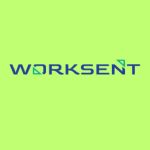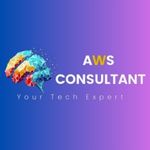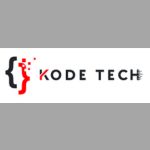
Top Product Prototyping Development Companies
Finding the right product prototyping development company is essential for turning ideas into tangible, market-ready products. Our carefully curated list of the top product prototyping development companies helps you choose the best firms based on expert reviews, ratings, and client feedback. These companies specialize in rapid prototyping, 3D modeling, concept development, and manufacturing support, ensuring a seamless transition from design to production. Whether you’re a startup or an established business, explore industry leaders known for innovation, precision, and expertise. Compare services, past projects, and customer experiences to select the perfect partner for your prototyping and product development needs.
List of the Best Prototype Design Services | Top Product Prototyping Development Companies in the World

-
Employees: 50 -249
-
Min. Project amount: 5000+
-
Country: Noida, Uttar Pradesh, India
-
Employees: 11 - 50
-
Min. Project amount: $1,000+
-
Country: Colombo 05, Sri Lanka

Halfnine
-
Employees: 0 to 10
-
Min. Project amount: $5,000+
-
Country: Orlando, Florida, USA

Atlas SoftWeb
-
Employees: 51-100
-
Min. Project amount: $10,000+
-
Country: 413, Palladium Business Hub, Visat – Gandhinagar Highway, Opp 4D square Mall, Chandkheda Ahmedabad, India 380005

Inventcolabs
-
Employees: 51-100
-
Min. Project amount: $5,000+
-
Country: Jaipur, India

Worksent Technologies
-
Employees: 101-250
-
Min. Project amount: Undisclosed
-
Country: United States 651, N Broad St, Middletown Delaware-19709

AWS Consulting Services
-
Employees: 11-50
-
Min. Project amount: $25000
-
Country: Pune, India

AZ Citation Services
-
Employees: 11-50
-
Min. Project amount: $1,000+
-
Country: 1515 N Queen St Unit 804 Arlington, VA, United States 22209

Cubix
-
Employees: 251 - 500
-
Min. Project amount: $25,000+
-
Country: 560 Village Blvd. Suite 120, #3 West Palm Beach, FL 33409

Hyperlocal Cloud
-
Employees: 101 - 249
-
Min. Project amount: $10000
-
Country: USA
** Buyer's Guide **
- 1. What are the key factors to consider when choosing a product prototyping development company?
- 2. What types of prototyping methods do these companies offer?
- 3.How Long Does It Take to Develop a Prototype for a New Product?
- 4. What is the cost of product prototyping, and what factors influence pricing?
1.What are the key factors to consider when choosing a product prototyping development company?
Key Factors to Consider When Choosing a Product Prototyping Development Company
Selecting the right product prototyping development company is crucial for ensuring a seamless transition from concept to a functional prototype. Here are the key factors to consider:
1. Expertise and Experience
- Look for a company with a strong portfolio in your industry.
- Assess their experience with different prototyping methods (CNC machining, 3D printing, injection molding, etc.).
- Check if they have expertise in working with various materials and technologies.
2. Capabilities and Technology
- Ensure they have access to cutting-edge prototyping tools and software.
- Verify if they can handle rapid prototyping, functional prototypes, and high-fidelity models.
- Assess their ability to produce both low-fidelity (conceptual) and high-fidelity (functional) prototypes.
3. Customization and Flexibility
- The company should be able to tailor its approach to meet your unique product requirements.
- Check if they accommodate iterative changes and modifications.
- Ensure they support multiple design revisions to refine the prototype.
4. Quality and Precision
- Look for a company with strict quality control measures.
- Check if they use high-precision manufacturing techniques.
- Request sample prototypes to assess their accuracy and finish.
5. Cost-Effectiveness
- Compare pricing with other providers while considering the value offered.
- Look for transparent pricing without hidden charges.
- Ensure the cost aligns with your budget without compromising quality.
6. Turnaround Time and Efficiency
- Assess their ability to deliver prototypes within your required timeline.
- Check their workflow efficiency and project management processes.
- Inquire about lead times for different prototyping methods.
7. Collaboration and Communication
- Look for a company that maintains clear and consistent communication.
- Ensure they provide regular updates and feedback during the development process.
- Check if they have dedicated project managers or account managers.
8. Intellectual Property (IP) Protection
- Ensure they have strict confidentiality policies in place.
- Verify if they sign NDAs (Non-Disclosure Agreements) to protect your product idea.
- Assess their approach to data security and proprietary rights.
9. Post-Prototyping Support
- Check if they offer additional services such as testing, refinement, and manufacturing support.
- Evaluate their ability to scale production if needed.
- Ensure they assist with design optimization for mass production.
10. Client Reviews and Reputation
- Look at client testimonials and case studies.
- Check online reviews and ratings.
- Seek recommendations from industry professionals.
Choosing the right product prototyping development company ensures that your product idea is transformed into a viable prototype with efficiency, quality, and cost-effectiveness.
2.What types of prototyping methods do these companies offer?
Types of Prototyping Methods Offered by Product Prototyping Development Companies
Product prototyping development companies offer various prototyping methods based on project requirements, materials, complexity, and budget. Here are the most common types:
1. 3D Printing (Additive Manufacturing)
- Uses layer-by-layer material deposition to create prototypes.
- Ideal for rapid prototyping and low-cost functional testing.
- Common technologies include:
- Fused Deposition Modeling (FDM): Affordable, widely used for early-stage models.
- Stereolithography (SLA): High-detail, smooth finish, suitable for detailed concept models.
- Selective Laser Sintering (SLS): Uses powder-based materials for durable prototypes.
2. CNC Machining (Subtractive Manufacturing)
- Uses automated cutting tools to carve a prototype from solid materials.
- Produces highly precise, functional prototypes.
- Suitable for metal and plastic prototypes that require durability.
3. Injection Molding Prototypes
- Involves injecting molten material into a mold to create a prototype.
- Ideal for testing plastic product designs before mass production.
- Best for large-scale production validation.
4. Vacuum Casting (Urethane Casting)
- Uses silicone molds to produce small batches of high-quality prototypes.
- Suitable for flexible, rubber-like, and transparent parts.
- Provides a finish similar to final production parts.
5. Sheet Metal Prototyping
- Uses bending, cutting, and stamping processes to create metal prototypes.
- Best for functional testing of enclosures, brackets, and industrial components.
- Offers high durability and strength.
6. Laser Cutting and Engraving
- Uses laser technology to cut and engrave materials like acrylic, wood, and metal.
- Ideal for flat components, enclosures, and branding elements.
- Provides precise and intricate designs.
7. Foam and Wood Prototyping
- Uses soft materials like foam or wood to create conceptual and ergonomic models.
- Useful for early-stage design exploration and user feedback.
- Low-cost and fast turnaround.
8. Electronic Prototyping
- Used for circuit board development and embedded systems testing.
- Involves PCB (Printed Circuit Board) prototyping, sensor integration, and IoT prototyping.
- Essential for developing smart devices and electronics.
9. Hybrid Prototyping (Multiple Methods Combined)
- Uses a combination of 3D printing, CNC machining, and casting for complex prototypes.
- Allows testing of different components with varied materials.
- Suitable for multi-part product development.
10. Software and Digital Prototyping
- Includes CAD modeling, simulation, and virtual reality (VR) prototyping.
- Used to test user experience (UX), mechanical performance, and simulations.
- Reduces material costs before physical prototyping begins.
Each method has its advantages and is selected based on project needs, functionality, material requirements, and cost constraints
3.How Long Does It Take to Develop a Prototype for a New Product?
The time required to develop a prototype depends on various factors, including complexity, materials, manufacturing methods, and revisions. Here’s a breakdown of the estimated timeline based on different stages and prototyping types:
1. Conceptualization and Design (1–4 Weeks)
- Idea Development: Initial brainstorming, sketching, and defining product specifications (a few days to a week).
- 3D CAD Modeling: Creating a digital 3D model of the prototype using design software like SolidWorks or AutoCAD (1–3 weeks).
- Revisions & Approvals: Iterating on the design based on feedback before moving to physical prototyping (varies based on complexity).
2. Prototyping Method and Production Timeline
a) Rapid Prototyping Methods (1–3 Weeks)
- 3D Printing: Can take a few hours to a couple of days, depending on the size and complexity.
- CNC Machining: Typically takes 3–10 days for functional parts.
- Vacuum Casting: Requires 1–2 weeks for small-batch production.
b) Traditional Prototyping Methods (3–8 Weeks)
- Injection Molding: Requires mold development, taking 4–8 weeks.
- Sheet Metal Fabrication: Takes 2–4 weeks depending on complexity.
- Electronics Prototyping: PCB prototyping and assembly may take 3–6 weeks, depending on component availability.
3. Testing and Iterations (2–6 Weeks)
- Functional Testing: Evaluating prototype performance in real-world conditions (1–3 weeks).
- Design Refinements: Making necessary adjustments and improvements based on testing feedback (2–4 weeks).
- Multiple Iterations: If major design changes are needed, additional weeks may be required.
4. Finalizing the Prototype for Production (3–6 Weeks)
- Pre-production Refinements: Optimizing the design for mass production.
- Material & Manufacturing Adjustments: Selecting the best materials and refining manufacturing processes.
- Production-Ready Prototype: Creating the final working prototype to match production requirements.
Total Estimated Timeframe
- Simple Prototypes (Basic 3D Printed Models, Mockups): 1–3 weeks
- Medium Complexity Prototypes (Functional, CNC Machined, or Vacuum Casted Models): 4–8 weeks
- Complex Prototypes (Electronics, Injection Molding, Multiple Iterations): 8–16+ weeks
Factors Affecting Timeline
- Product Complexity: More intricate designs require longer development times.
- Material Availability: Delays may occur due to supply chain issues.
- Revisions and Iterations: The number of changes and refinements impacts the timeline.
- Prototyping Method: Some methods, like 3D printing, are faster than traditional manufacturing.
- Testing Requirements: More rigorous testing can extend the timeline.
Conclusion: Developing a prototype can take anywhere from a few weeks to several months, depending on the product type, required precision, and number of design iterations.
4.What is the cost of product prototyping, and what factors influence pricing?
Cost of Product Prototyping & Factors Influencing Pricing
The cost of product prototyping varies widely depending on factors such as complexity, materials, technology used, and the number of iterations required. The price range can be anywhere from $100 to $100,000+, depending on the type of prototype and industry.
1. Estimated Costs of Different Prototyping Methods
| Prototyping Method | Cost Range | Best For |
|---|---|---|
| 3D Printing | $100 – $5,000 | Concept models, small functional parts |
| CNC Machining | $500 – $20,000 | High-precision metal/plastic parts |
| Vacuum Casting | $1,000 – $10,000 | Small batch production, high-quality finishes |
| Injection Molding | $5,000 – $100,000+ | Mass production-ready prototypes |
| Sheet Metal Prototyping | $500 – $15,000 | Structural and industrial components |
| Electronics Prototyping (PCBs, IoT, Sensors) | $2,000 – $50,000+ | Smart devices, embedded systems |
| Hybrid Prototyping (Multiple Methods Combined) | $5,000 – $50,000+ | Complex prototypes with mixed materials |
2. Key Factors Influencing Prototyping Costs
A. Product Complexity
- Simple designs (e.g., basic plastic casings) are cheaper.
- Complex mechanical/electronic products require more time and resources, increasing costs.
B. Materials Used
- Plastic: Affordable ($100 – $2,000 for basic prototypes).
- Metal: More expensive due to machining and precision requirements ($1,000 – $20,000).
- Specialty Materials (Carbon Fiber, High-Grade Alloys): Higher costs due to sourcing and processing.
C. Prototyping Method
- 3D Printing: Cost-effective for small parts and concept models.
- CNC Machining: More expensive but offers high precision.
- Injection Molding: High upfront costs for mold creation, but cost-efficient for large production runs.
D. Number of Iterations & Revisions
- More iterations lead to higher costs.
- Rapid prototyping can help reduce expenses by identifying issues early.
E. Size and Scale of the Prototype
- Larger prototypes require more material and manufacturing time.
- Complex assemblies increase labor costs.
F. Testing and Validation Requirements
- Functional testing, durability tests, and compliance testing add extra costs.
- Industries like medical devices and aerospace require rigorous certifications, increasing expenses.
G. Location of the Prototyping Company
- Prototyping costs vary based on geographical location.
- Offshore prototyping (e.g., China, India) may be cheaper but could involve quality and IP risks.
H. Labor & Engineering Costs
- Skilled labor for product design, CAD modeling, and engineering analysis adds to costs.
- More advanced engineering (e.g., IoT, AI integration) increases expenses.
3. Cost-Effective Strategies for Prototyping
✔ Start with a simple concept model before investing in high-end prototypes.
✔ Use 3D printing for early-stage prototyping to save costs.
✔ Optimize design for manufacturability to reduce material waste.
✔ Partner with a prototyping company offering end-to-end support to avoid multiple service providers.
✔ Consider local manufacturers to cut shipping and logistics costs.
Conclusion
The cost of product prototyping depends on the complexity, materials, and manufacturing methods used. Startups and small businesses can minimize costs by using rapid prototyping techniques, while large-scale manufacturers may invest in high-fidelity and production-ready prototypes for long-term cost efficiency




